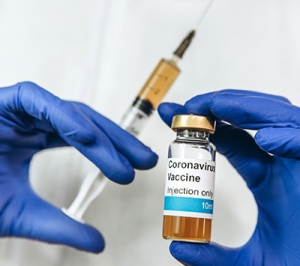Prior coronavirus infection 'offers protection for at least six months'
Most people who get coronavirus are safe from reinfection for at least six months, latest research suggests.
The finding follows the first large scale study of how much protection is offered by previously having had COVID-19.
It comes as optimism grows over the development and deployment of effective vaccines to combat the pandemic.
However, while hailed as an important step to understanding coronavirus immunity, scientists say there is not yet enough data to make a judgement on how long it lasts beyond the six months from the initial infection and the work will continue.
The study, undertaken as part of a collaboration between the University of Oxford and Oxford University Hospitals (OUH) NHS Foundation Trust, covered a 30-week period (April - November) involving 12,180 health care workers.
The staff were tested for antibodies to the virus as a way of detecting who had been infected before.
Source: https://news.sky.com/story/covid-19-prior-coronavirus-infection-offers-protection-for-at-least-six-months-12137084
How will I get a coronavirus vaccine?
When will coronavirus vaccinations start?
The UK government is confident that some of the most at-risk groups will be vaccinated before Christmas, and most over-50s before the spring.
More people may be offered a vaccine during 2021, if one is approved by UK regulator, the MHRA.
It will only authorise a vaccine if one meets strict safety, quality and effectiveness standards.
That process will probably take a few weeks. Usually it takes months, but these vaccines are being prioritised.
When will I get a vaccine?
That will mainly depend on your age - with people in care homes and the over-80s at the front of the queue, potentially in December.
That's because the older you are, the higher your risk of becoming seriously ill or dying from the virus - and that risk rises sharply beyond 70.
The Joint Committee on Vaccination and Immunisation (JCVI) has decided that care home workers and health and social care staff are also a priority, because they could transmit the virus to vulnerable patients.
After these groups, the plan is to offer the vaccine to everyone else based on their age - from the oldest to the youngest by next spring.
Whether people with underlying health conditions and those from ethnic minority backgrounds are also prioritised in some way, has not been decided.
Where will I get a vaccine?
You'll be invited to get a vaccine as soon as it's your turn, probably by letter.
This could be through your GP surgery, a hospital or care home if you work there, or through vaccination hubs which are being set up around the country.
The NHS is ready to start giving vaccines as soon as the first one is approved and delivered to the UK.
It is recruiting 30,000 volunteers to help, some of who will be trained to give the jabs.
Plans have been in place for months, but they can only be finalised once the regulators authorise the vaccines.
If the Pfizer vaccine is rolled out first, the challenge of storing doses at very cold temperatures will need to be planned for - but this isn't an issue with the Oxford one, which can be stored at normal fridge temperature.
Source: https://www.bbc.co.uk/news/health-55045639





